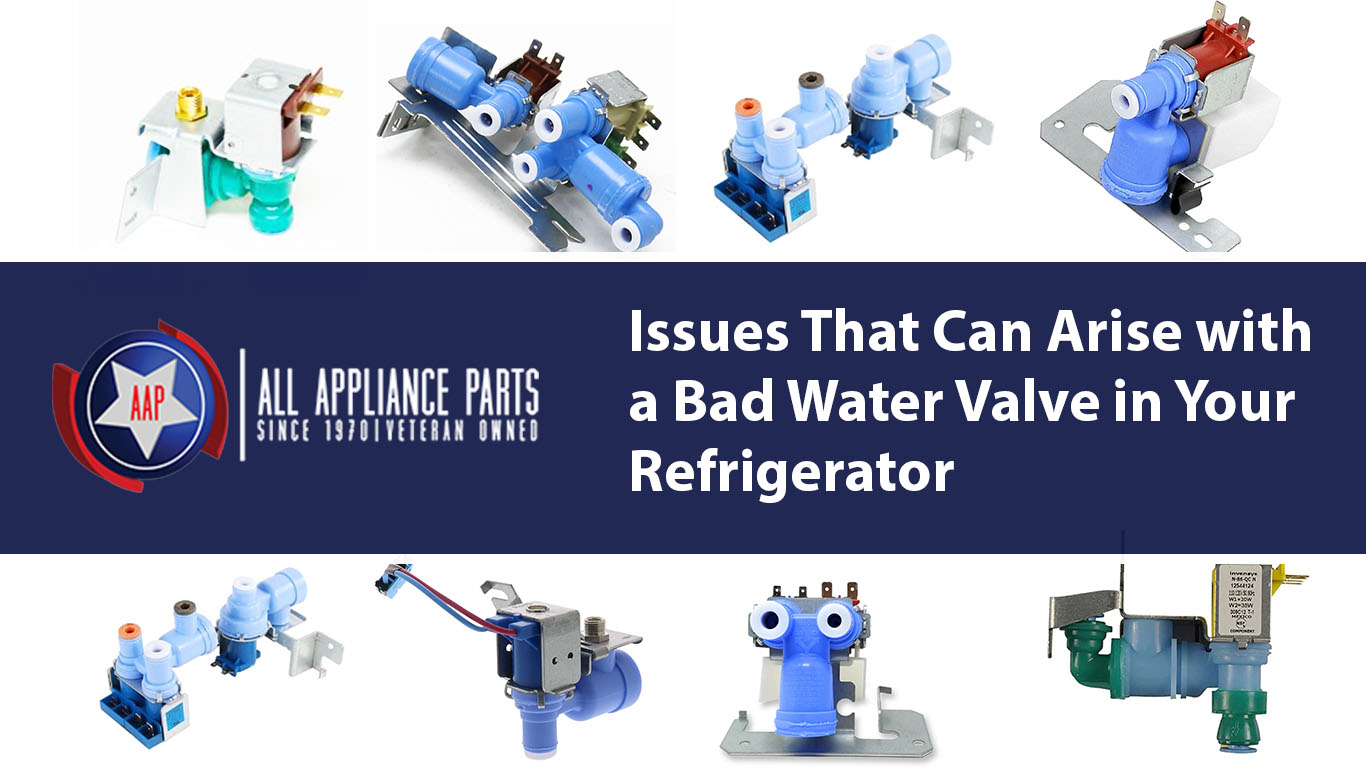Refrigerators have become an integral part of our daily lives, ensuring our food stays fresh and our drinks remain cold. While we often focus on the cooling system and storage capacity of these appliances, there is a crucial component that often goes unnoticed but plays a significant role in their functionality – valves. Among the various types of valves in a refrigerator, the water valve is particularly vital for those with ice makers and water dispensers. In this blog, we’ll explore the importance of valves in refrigerators and the problems that can arise when the water valve goes bad.
Refrigerators are not just about keeping your groceries fresh; they often come equipped with additional features like ice makers and water dispensers. These features rely on valves to control the flow of water to specific parts of the refrigerator. Here are the key roles valves play in refrigerators:
- Water Dispenser: The water valve controls the flow of water to the external dispenser on the refrigerator door. When you press the water dispenser, the valve opens to allow water to flow from your home’s water supply to the glass or container.
- Ice Maker: For refrigerators with ice makers, the ice maker valve regulates the flow of water to the ice maker unit. This water is used to create ice cubes, ensuring you always have a fresh supply of ice for your drinks.
- Defrosting: Some refrigerators use valves to control the flow of warm air for defrosting the freezer section. This prevents ice build-up, ensuring efficient cooling.
A faulty water valve in your refrigerator can lead to several problems, disrupting your daily routine and potentially causing damage to the appliance. Here are some common issues that can arise when the water valve goes bad:
- No Water or Ice: The most apparent consequence of a bad water valve is the inability to get water from the dispenser or produce ice. This can be particularly inconvenient on a hot day when you need a cold drink, or when you’re hosting guests.
- Reduced Ice Production: Even if your ice maker still produces ice, a malfunctioning valve can lead to reduced ice production or the formation of irregularly shaped ice cubes, which might clog the ice maker or dispenser.
- Leaks and Water Damage: A damaged valve may not completely close, causing water to leak into your refrigerator, potentially damaging internal components or leading to mold growth. This can also result in water pooling on the floor around your refrigerator.
- Overheating Compressor: In some cases, a faulty water valve can lead to the refrigerator’s compressor overheating, which can damage the appliance and potentially lead to a complete breakdown.
- Higher Energy Bills: If your refrigerator is constantly running due to an issue with the defrosting valve, it can lead to higher energy consumption and, consequently, higher utility bills.
Valves are an integral part of the functionality of modern refrigerators, especially those equipped with water dispensers and ice makers. A bad water valve can result in various inconveniences, from a lack of cold water and ice to water leaks and potential damage to your appliance.
Regular maintenance and prompt replacement of faulty valves are crucial to ensure your refrigerator remains in good working condition. If you experience any of the problems mentioned, give All Appliance Parts a call and we can set you in the right direction to get the issue repaired, we will find the parts and suggest a repair technician, keeping your refrigerator in tip-top shape and ensuring your kitchen remains efficient and convenient.

